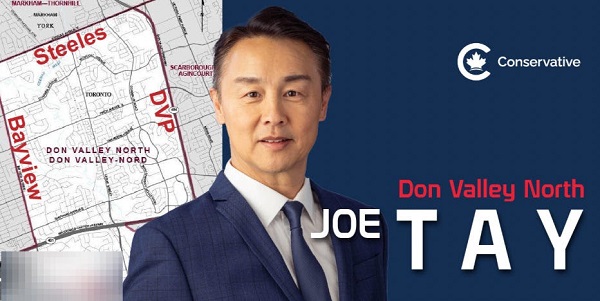Business
Canadian farm producing consumable crickets lays off two-thirds of its employees
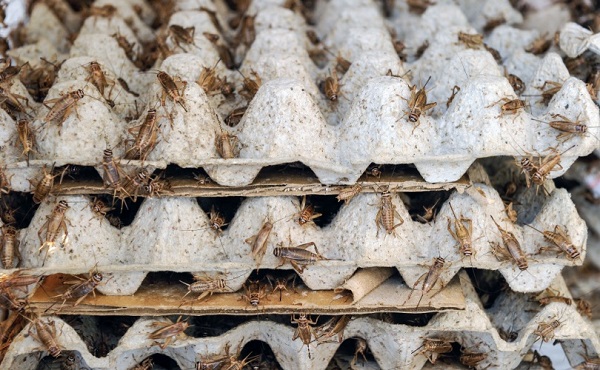
From LifeSiteNews
The workforce reduction at a London, Ontario, facility that received $8.5 million in government funding appears to be a sign that Canadians do not have an appetite for bugs.
It appears Canadians’ taste for eating food made from bugs is not in high demand after news broke that a farm given millions by the federal government to raise crickets for “human and pet consumption” laid off two-thirds of its staff.
The cricket farm in London, Ontario, run by the Aspire Food Group just broke ground on a new 150,000-square-foot facility last year. The company said it was cutting shifts and going from 150 workers to 50.
In comments made to the trade news outlet AgFunderNews, company CEO David Rosenberg said the layoffs are due to making “improvements to its manufacturing system.”
The fact the company is already cutting costs in dramatic fashion comes only a short time after Canada’s federal government under Prime Minister Justin Trudeau contributed $8.5 million to it in 2022.
The cricket farm when fully operational can make 13 million kilograms of crickets for “human and pet consumption.”
It was given widespread coverage several years ago by Canada’s state-funded CBC, which billed it as the “world’s largest cricket production facility.”
Aspire’s pitch that its food had a lower environmental footprint than protein from cattle or pigs was in lockstep with the radical environmental goals of the Trudeau government as one of the reasons it landed a large grant.
According to AgFunderNews, only a year ago Aspire claimed its factory would be working at 100 percent by the start of 2024.
“We have significant contractual commitments for the majority of our production and expect 100% will be sold within the year,” former CEO Mohammed Ashour told AgFunderNews in March 2023.
Groups such as the Canadian Taxpayers Federation (CTF) blasted the federal government for subsidizing companies that make food out of crickets for human consumption, saying it amounts to giving Canadians “their ‘let them eat crickets’ moment.”
Both crickets and mealworms in recent years have been promoted by global elites as a source of protein that they say could replace beef or pork, and which can also be used in a variety of foods.
Indeed, the Great Reset of Klaus Schwab and his World Economic Forum (WEF) has as part of its agenda the promotion of eating bugs to replace beef, pork, and other meats that they say have high “carbon” footprints.
Conservative Party says layoffs at bug factory show ‘Canadians will not eat bugs’
The Conservative Party of Canada in an email to members said that the news regarding Aspire cutting most of its staff is proof that Canadians “will not eat bugs.”
“Justin Trudeau bet $9 million of your money on edible BUGS! He wants Canadians to own nothing, be happy, and eat crickets,” the party said in the email.
“But his bet failed. The company he invested YOUR tax dollars in has dramatically cut production and fired two-thirds of their staff. Turns out, Canadians don’t want to eat bugs.”
In 2022, Conservative MP Leslyn Lewis blasted the current cancel-culture crusade against red meat by pushing bugs as a source of food and the Trudeau government for funding bug factories.
The Trudeau government has implemented many policies that align with the WEF’s so-called “climate change” agenda, including a punishing carbon tax, and attacks on the nation’s oil and gas industries.
According to records, since 2018, a total of $420,023 has been spent on helping multiple food companies that make human bug food.
At the same time, the Trudeau government has begun to attack Canadian farmers by pushing forth an agenda that would force them to reduce the amount of nitrogen-based fertilizer. This could have a large negative impact on the growing of feed for cattle as well as food for human consumption.
Aspire is not the only factory in Canada breeding bugs to turn them into food for both human and animal consumption. The CTF listed all of the cricket processing companies that receive corporate welfare.
Dr. Joseph Mercola, in a blog posted by LifeSiteNews, documented how Schwab’s Great Reset agenda looks to force the world’s population to, by pressuring local governments, make people “consider eating bugs and weeds and drink ‘reclaimed’ sewage.”
Business
Canada urgently needs a watchdog for government waste

This article supplied by Troy Media.
 By Ian Madsen
By Ian Madsen
From overstaffed departments to subsidy giveaways, Canadians are paying a high price for government excess
Canada’s federal spending is growing, deficits are mounting, and waste is going unchecked. As governments look for ways to control costs, some experts say Canada needs a dedicated agency to root out inefficiency—before it’s too late
Not all the Trump administration’s policies are dubious. One is very good, in theory at least: the Department of Government Efficiency. While that
term could be an oxymoron, like ‘political wisdom,’ if DOGE proves useful, a Canadian version might be, too.
DOGE aims to identify wasteful, duplicative, unnecessary or destructive government programs and replace outdated data systems. It also seeks to
lower overall costs and ensure mechanisms are in place to evaluate proposed programs for effectiveness and value for money. This can, and often does, involve eliminating departments and, eventually, thousands of jobs. Some new roles within DOGE may need to become permanent.
The goal in the U.S. is to reduce annual operating costs and ensure government spending grows more slowly than revenues. Washington’s spending has exploded in recent years. The U.S. federal deficit now exceeds six per cent of gross domestic product. According to the U.S. Treasury Department, the cost of servicing that debt is rising at an unsustainable rate.
Canada’s latest budget deficit of $61.9 billion in fiscal 2023-24 amounts to about two per cent of GDP—less alarming than our neighbour’s situation, but still significant. It adds to the federal debt of $1.236 trillion, about 41 per cent of our estimated $3 trillion GDP. Ottawa’s public accounts show expenses at 17.8 per cent of GDP, up from about 14 per cent just eight years ago. Interest on the growing debt accounted for 9.1 per cent of
revenues in the most recent fiscal year, up from five per cent just two years ago.
The Canadian Taxpayers Federation (CTF) consistently highlights dubious spending, outright waste and extravagant programs: “$30 billion in subsidies to multinational corporations like Honda, Volkswagen, Stellantis and Northvolt. Federal corporate subsidies totalled $11.2 billion in 2022 alone. Shutting down the federal government’s seven regional development agencies would save taxpayers an estimated $1.5 billion annually.”
The CTF also noted that Ottawa hired 108,000 additional staff over the past eight years, at an average annual cost of more than $125,000 each. Hiring based on population growth alone would have added just 35,500 staff, saving about $9 billion annually. The scale of waste is staggering. Canada Post, the CBC and Via Rail collectively lose more than $5 billion a year. For reference, $1 billion could buy Toyota RAV4s for over 25,600 families.
Ottawa also duplicates functions handled by provincial governments, often stepping into areas of constitutional provincial jurisdiction. Shifting federal programs in health, education, environment and welfare to the provinces could save many more billions annually. Poor infrastructure decisions have also cost Canadians dearly—most notably the $33.4 billion blown on what should have been a relatively simple expansion of the Trans Mountain pipeline. Better project management and staffing could have prevented that disaster. Federal IT systems are another money pit, as shown by the $4-billion Phoenix payroll debacle. Then there’s the Green Slush Fund, which misallocated nearly $900 million.
Even more worrying, the rapidly expanding Old Age Supplement and Guaranteed Income Security programs are unfunded, unlike the Canada Pension Plan. Their combined cost is already roughly equal to the federal deficit and could soon become unmanageable.
Canada is sleepwalking toward financial ruin. A Canadian version of DOGE—Canada Accountability, Efficiency and Transparency Team, or CAETT—is urgently needed. The Office of the Auditor General does an admirable job identifying waste and poor performance, but it’s not proactive and lacks enforcement powers. At present, there is no mechanism in place to evaluate or eliminate ineffective programs. CAETT could fill that gap and help secure a prosperous future for Canadians.
Ian Madsen is a senior policy analyst at the Frontier Centre for Public Policy.
The views, opinions, and positions expressed by our columnists and contributors are solely their own and do not necessarily reflect those of our publication.
© Troy Media
Troy Media empowers Canadian community news outlets by providing independent, insightful analysis and commentary. Our mission is to support local media in helping Canadians stay informed and engaged by delivering reliable content that strengthens community connections and deepens understanding across the country.
Business
Trump says he expects ‘great relationship’ with Carney, who ‘hated’ him less than Poilievre
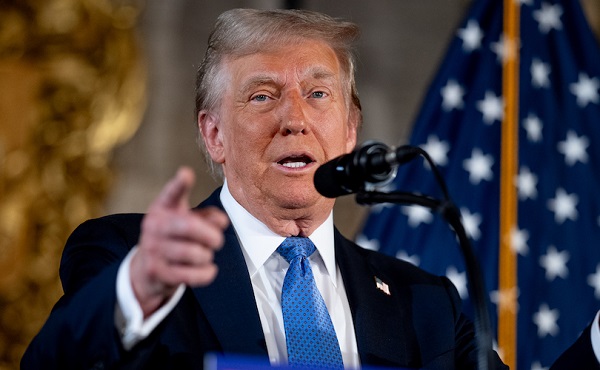
From LifeSiteNews
‘He called me up yesterday and said, ‘Let’s make a deal,’’ Trump said on Wednesday about Carney. ‘I actually think the conservative hated me much more than the so-called liberal.’
U.S. President Donald Trump implied that he was satisfied with Mark Carney winning the 2025 Canadian federal election, calling him a “nice gentleman” who “hated” him less than Conservative leader Pierre Poilievre.
“I think we are going to have a great relationship. He called me up yesterday and said, ‘Let’s make a deal,’” said Trump on Wednesday when asked about Carney and Monday’s election results.
Trump then said that Carney and Poilievre “both hated Trump,” but added, “It was the one that hated Trump I think the least that won.”
“I actually think the conservative hated me much more than the so-called liberal, he’s a pretty liberal guy,” he said.
Trump said that he spoke with Carney already, and that “he couldn’t have been nicer. And I congratulated him.”
“You know it’s a very mixed signal because it’s almost even, which makes it very complicated for the country. It’s a pretty tight race,” said Trump.
Trump then called Carney a “very nice gentleman and he’s going to come to the White House very shortly.”
Monday’s election saw Liberal leader Carney beat out Conservative rival Poilievre, who also lost his seat. The Conservatives managed to pick up over 20 new seats, however, and Poilievre has vowed to stay on as party leader, for now.
Back in March, Trump said at the time he had “an extremely productive call” with Carney and implied that the World Economic Forum-linked politician would win Canada’s upcoming federal election.
He also said before the election that he would prefer Carney to continue as Canada’s prime minister instead of Poilievre, who he said was “no friend” of his.
Trump, mostly while Justin Trudeau was prime minister, had repeatedly said that Canada should join the United States as its 51st state. This fueled a wave of anti-American sentiment in Canada, which saw the mainstream press say Poilievre was a “Trump lite” instead of Carney.
Poilievre at the time hit back at Trump, saying that the reason Trump endorsed Carney was that he “knows” he would be a “tough negotiator.”
Trump’s comments regarding Carney were indeed significant, as much of the debate in the mainstream media ahead of the election was about how the prospective leaders will handle tariff threats and trade deals with America.
Many political pundits have said that Carney owes his win to Trump.
Carney’s win has sparked a constitutional crisis. Alberta Premier Danielle Smith, as reported by LifeSiteNews, said that her province could soon consider taking serious steps toward greater autonomy from Canada in light of Carney’s win.
Under Carney, the Liberals are expected to continue much of what they did under Trudeau, including the party’s zealous push in favor of abortion, euthanasia, radical gender ideology, internet regulation and so-called “climate change” policies. Indeed, Carney, like Trudeau, seems to have extensive ties to both China and the globalist World Economic Forum, connections which were brought up routinely by conservatives in the lead-up to the election.
Poilievre’s defeat comes as many social conservatives felt betrayed by the leader, who more than once on the campaign trail promised to maintain the status quo on abortion – which is permitted through all nine months of pregnancy – and euthanasia and who failed to directly address a number of moral issues like the LGBT agenda.
-

 espionage2 days ago
espionage2 days agoLongtime Liberal MP Warns of Existential Threat to Canada, Suggests Trump’s ’51st State’ Jibes Boosted Carney
-
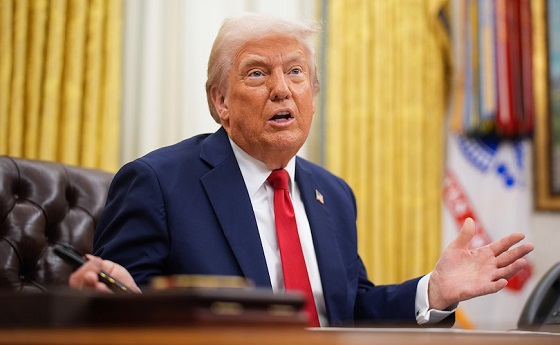
 Business1 day ago
Business1 day agoTrump’s bizarre 51st state comments and implied support for Carney were simply a ploy to blow up trilateral trade pact
-

 Frontier Centre for Public Policy1 day ago
Frontier Centre for Public Policy1 day agoTrust but verify: Why COVID-19 And Kamloops Claims Demand Scientific Scrutiny
-
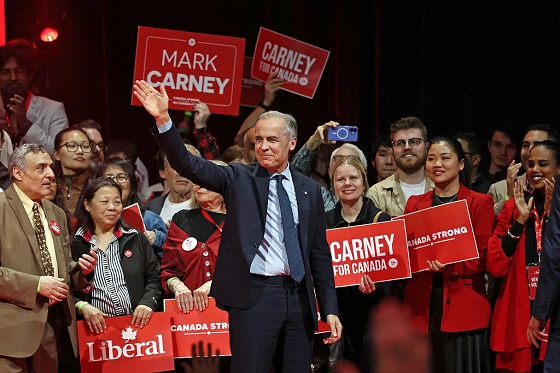
 Alberta19 hours ago
Alberta19 hours agoAlberta’s future in Canada depends on Carney’s greatest fear: Trump or Climate Change
-
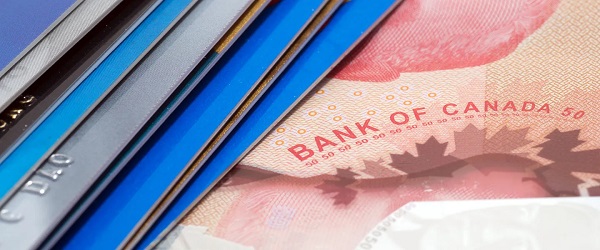
 Business2 days ago
Business2 days agoNew federal government plans to run larger deficits and borrow more money than predecessor’s plan
-
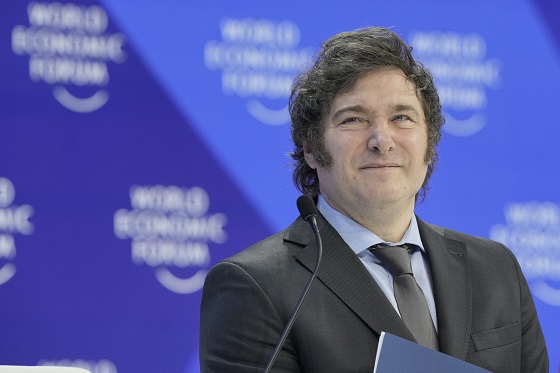
 International1 day ago
International1 day agoJavier Millei declassifies 1850+ files on Nazi leaders in Argentina
-
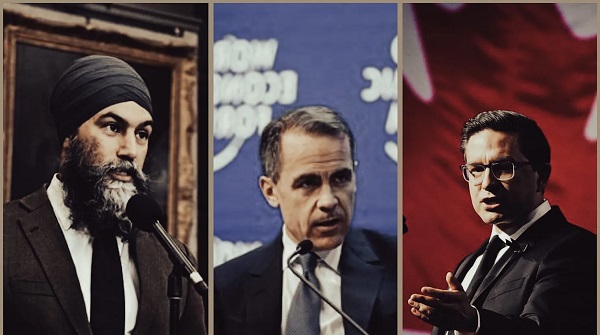
 2025 Federal Election2 days ago
2025 Federal Election2 days agoNDP Floor Crossers May Give Carney A Majority
-

 Alberta2 days ago
Alberta2 days agoPreston Manning: Canada is in a unity crisis
